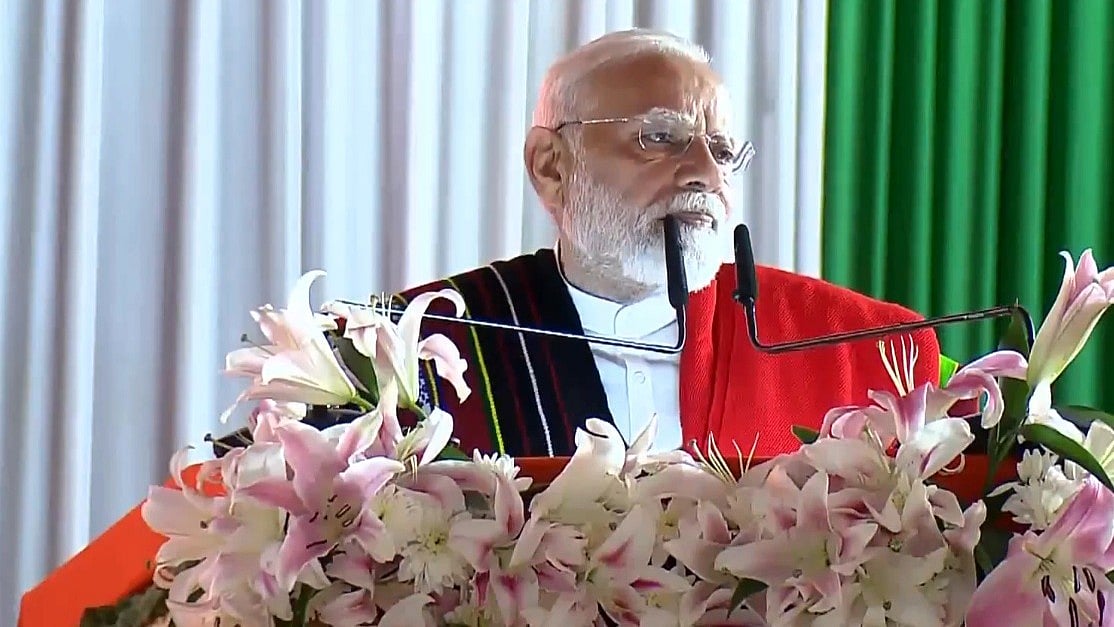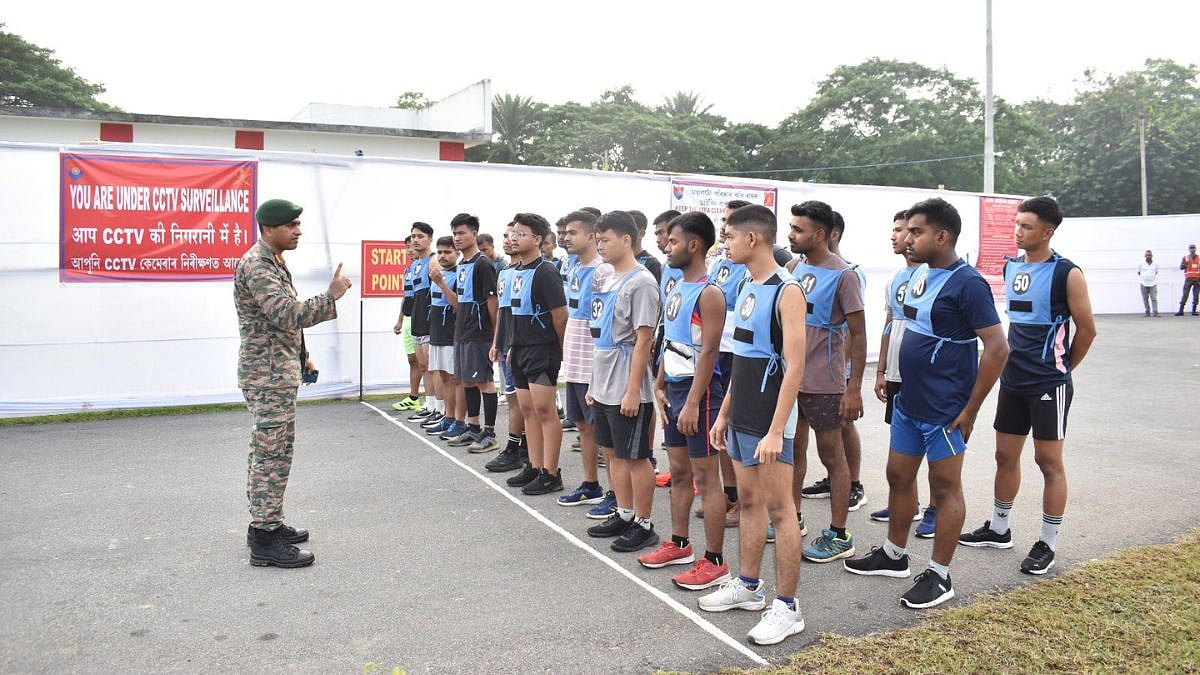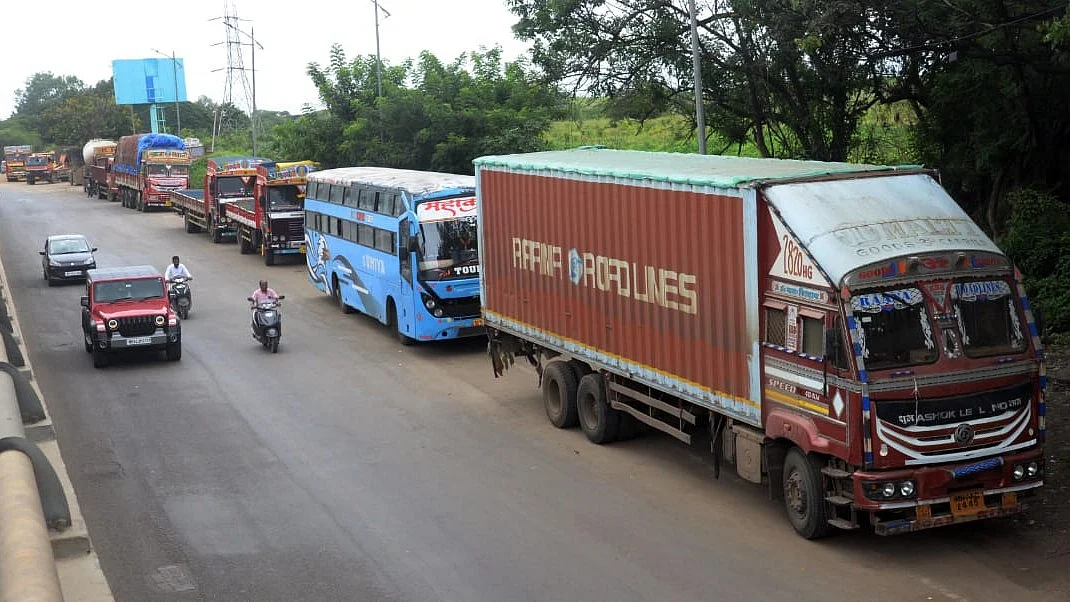As Pune grapples with incessant rains since last week, delivery agents are braving adverse weather conditions to deliver goods to their desired locations. The Indian Meteorological Department (IMD) has issued an orange alert for Pune for the coming week, with advisories forwarded by the National Disaster Management Authority (NDMA) about thunderstorms accompanied by gusty winds at 40-50 km/hr sweeping the city. Delivery agents brave these challenges to earn more in these hazardous weather conditions.
'Food delivery orders increase in the rainy season'
Rameshwar Tangade, a delivery agent with Swiggy, says, "Catching cold, fever, and sore throat have become pillions while delivering food during the rainy season." Food delivery orders increase in the rainy season as people prefer to stay home, and any delivery agent willing to make more money does not want to miss out on the opportunity. "On any normal day, we earn around Rs 800-900 per day, but during the heavy rainy season, we earn around Rs 2000 to 2500 per day," he explained. "I paid Rs 800 to get a raincoat," he added when asked if the company provides him with one.

'Lucratives in the form of tips/extra charges serve as the driving force'
Rajesh Shinde, a delivery agent at Zomato, says, "Lucratives in the form of tips/extra charges serve as the driving force behind receiving more orders by delivery agents. If I am going to get Rs 150 to deliver food within a 3 km range, which usually charges Rs 110, why will I deny the request?" he remarked. More goes into it than just receiving orders and delivering goods; the maintenance of vehicles and the health of delivery agents become potent issues.
'Insurance companies refuse to cover damages'
Jagdish Jadhav, a delivery agent with Blinkit, recounted how the bikes of delivery agents were submerged in water during heavy downpours last week. "My bike travels around 3,500-4,000 km every month, due to which I have to service my vehicle every second or third month. Insurance companies refuse to cover such damages, and the maintenance costs of vehicles increase exponentially. But since orders are more, maintenance costs get covered by it. On the insurance part, I am covered only under accident insurance for Rs 2 lakh," he said.
Auto-rickshaw and cab drivers are equally dealing with the possible repercussions of being unable to take rides due to rain. Amit Patil, an auto-rickshaw driver, explained, "If a commuter is unable to walk to catch an auto, and if waterlogged roads prevent me from reaching a customer, and I have to cancel the ride, the customer might lodge a complaint, which could lead to temporary suspension of my driver ID by the company."
'Government must provide e-bikes to delivery agents'
Sainath Jatla, coordinator of the All India Gig Workers Union (AIGWU) in Pune, says, "App-based platforms are employing exploitative ways to disempower informal workers." The ratings or valuation of a platform-based company in the market depends upon the effectiveness of its system to deliver goods at the last mile, and the gig workforce forms the backbone of this structure, he added. "We have been asking the government to provide e-bikes to delivery agents at subsidised rates via contracts with e-bike manufacturers to overcome the challenge of petrol vehicles in the rainy season. Riders are also supportive if they can purchase e-bikes at subsidised rates," he added.
Sainath remarks, "If a food delivery agent has the target to cover 40 customers in a day, he can easily manage in 4-5 hours, but app-based algorithms are set so that he may get 25-30 orders in 5 hours, but for the remaining orders, he has to wait until his working hours cover 12-14 hours." A similar concern was echoed by Tangade when he said that to earn Rs 2000/day, he has to work for 12 hours.
Last year, the Maharashtra government introduced a drive to register gig workers on the 'e-Shram' portal as a measure to access various social security and skill development opportunities for unorganised workers. "Aggregators should shoulder the responsibility along with the government to help register gig workers on the e-Shram portal, as they can avail Union government welfare schemes, for instance, Pradhan Mantri Shram Yogi Maandhan (PM-SYM) or Pradhan Mantri Jeevan Jyoti Yojana (PMJJY)," Sainath said.
'App-based platform companies are hesitant to become aggregators'
Keshav Kshirsagar, president of Baghtoy Rickshawala, says, "App-based platform companies, for instance, Ola, Uber, and Rapido, are hesitant to become aggregators because they fear a fall in revenue and do not want to shoulder drivers' welfare responsibilities, whom they call 'partners.'" "We, as a pressure group, can only pressurise the government to gradually formalise the informal economy, but it is the duty of the government to look after the welfare of its citizens," he added.

"It is least expected from big platform companies that they provide good working conditions for their partners. It is silly to think why a delivery agent should pay for a raincoat or delivery kit if they think we are partners of the firm," exclaimed Amit Patil.
Sainath recounts, "States like Rajasthan and Karnataka have passed bills on the welfare of gig workers in their respective assemblies. The bills have numerous provisions, including setting up a welfare fund, welfare board, and notice period before terminating the service of an employee." "These steps are welcome, but it is the right time that tripartite arrangements should be made between the government, employer, and employee to seek decisions for the welfare of gig workers," says Sainath.
The need of the hour is to have real-time information about waterlogged roads and to avoid areas of heavy rainfall. "These companies have the wherewithal to introduce real-time updates on their apps, as the life and safety of workers are important," Sainath said.












